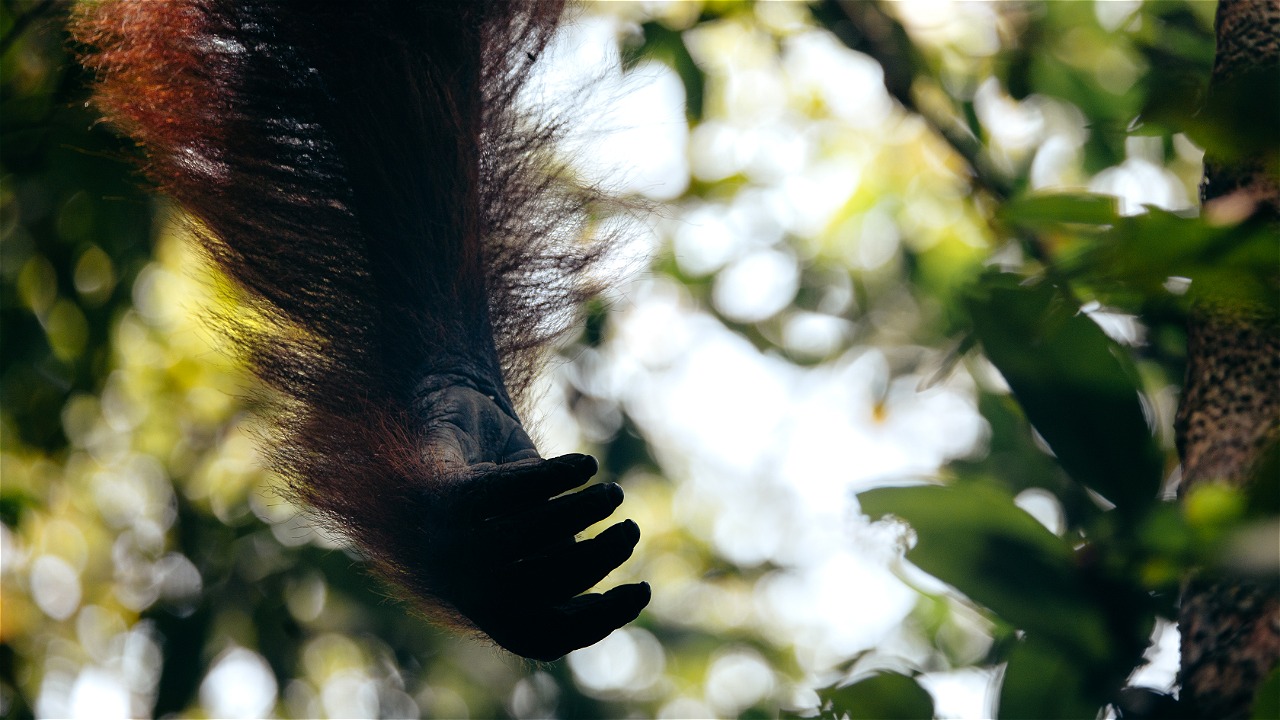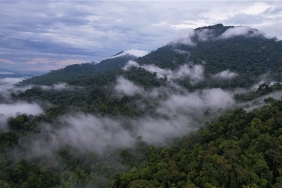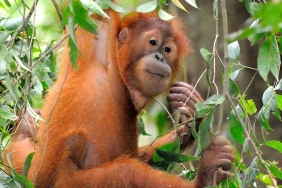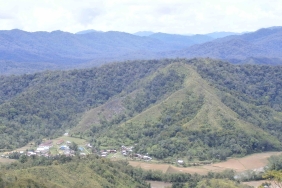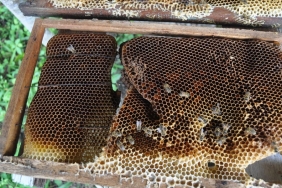ORANGUTAN TRAFFICKERS IN RIAU SENTENCED TO 2.5 YEARS IN PRISON
Pekanbaru, Riau - Three orangutan traffickers were found guilty of violating Law No. 5 of 1990 on wildlife crime at a verdict hearing held at the Pekanbaru District Court on March 22, 2016. The panel of judges chaired by H.A.S. Pudjoharsoyo sentenced two defendants, Ali bin Ismail and Awaluddin, to 2 years and 6 months imprisonment each and a fine of 80 million in lieu of 3 months imprisonment. While one other defendant, Khairiroza bin Sofyan was sentenced to 2 years, and a fine of 80 million in lieu of 3 months imprisonment.
The sentences imposed are relatively higher than those imposed in wildlife crime cases in Riau in the last 10 years. The average sentence has been around one year in prison, except for the sentences handed down to the four perpetrators of the January 2016 poaching of three elephant tusks in Pelalawan Regency.
Wishnu Sukmantoro, Central Sumatra Program Manager, WWF Indonesia stated, ""WWF appreciates the verdict given by the panel of judges of the Pekanbaru District Court against the three perpetrators of the Sumatran Orangutan trade."" He added, ""Given the high rate of poaching and trade of protected wildlife in Indonesia, especially in Riau, law enforcement should provide maximum penalties that can provide a deterrent effect to the perpetrators in an effort to prevent the extinction of Indonesia's endangered animals.""
The three Orangutan traffickers were arrested by Riau Police's Special Crimes Unit in Pekanbaru on November 7, 2015. Officers confiscated three baby Orangutans that were brought from Tamiang, Aceh and were estimated to be under one year old. Currently, the three Orangutans are under the care of the Orangutan Quarantine Center-SOCP (Sumatran Orang Conservation Program) in Batu Mbelin Village, Sibolangit District, Deli Serdang, North Sumatra.
Herry D. Susilo, Chairman of the Indonesian Orangutan Forum (FORINA) also expressed his appreciation for the verdict handed down by the Panel of Judges of the Pekanbaru District Court. Herry added, ""We hope that relevant parties will intensify law enforcement efforts against wildlife crimes, including orangutans, considering that these crimes tend to increase.""
Orangutan poaching crimes are very concerning and have the potential to reduce the population of wild orangutans in nature, because to get a baby orangutan, hunters usually have to kill the mother first, because they live arboreally in the tree canopy,.
""On the other hand, the orangutan birth rate is very low. Female orangutans give birth to their offspring after the age of 7 years with a long birth interval of about 8 years. This is why if the orangutan population tends to continue to decline, it will be very difficult to increase. Therefore, efforts to protect the population and habitat must be made," Herry explained. WWF Indonesia together with the Conservation Policy Coalition (Pokja Konservasi) encourages the revision of Law No. 5/1990 to be discussed in the 2016 National Legislation Program. The low punishment in the law is one of the weak points in preventing cases of trade and poaching of protected animals. Currently, the Ministry of Environment and Forestry (MoEF) is conducting public consultations on the draft Law to Amend Law No. 5/1990 in several places. The Sumatran orangutan is the most endangered of the two orangutan species living in Indonesia.
---o0o---
For more information, please contact:
Wishnu Sukmantoro, Progam Manager WWF Central Sumatra Program
E: wsukmantoro@wwf.id
M: 0812-70075996
Herry D. Susilo, Chairman of the Indonesian Orangutan Forum,
M: 0816-1395934

